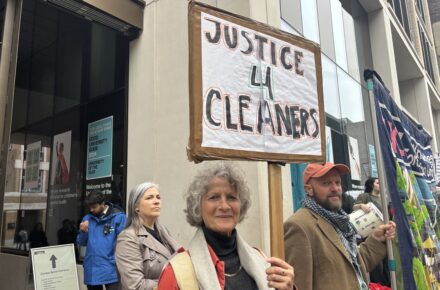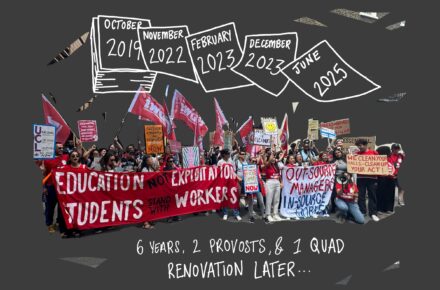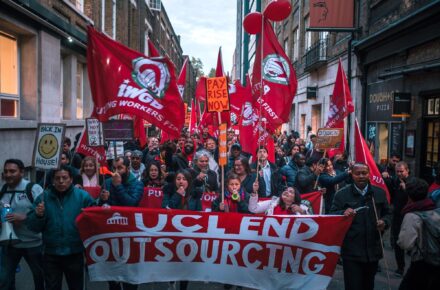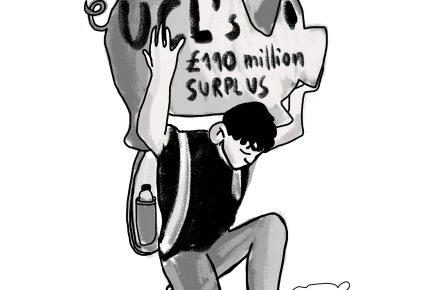
Edit: An earlier version of this article and the version in print claim with certainty that 195 full-time equivalent cleaners are due to be axed. This number was provided by the Independent Workers Union of Great Britain but has not been confirmed by UCL or Sodexo. The article has been amended to reflect this.
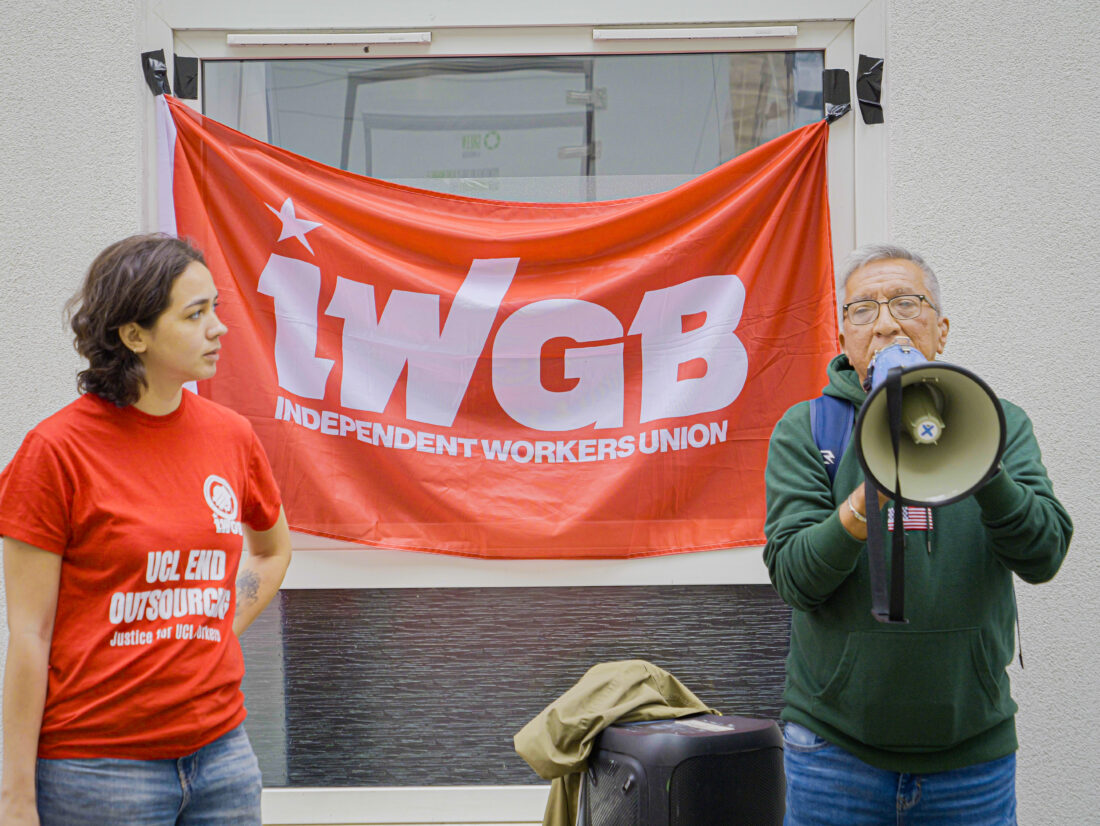
Earlier in August, UCL and Sodexo, its subcontractor for cleaning services, announced they would be cutting the jobs of many full-time equivalent cleaning staff. The Independent Workers Union of Great Britain (IWGB) claim this could be as many as 195 full-time equivalent (FTE) cleaners, but UCL and Sodexo have not yet confirmed this number.
Rather than working to end outsourcing by bringing staff in-house, UCL appears to have chosen to slash the number of workers altogether.
According to Freedom of Information figures, as of 14 August 2025, there are 650 cleaners under Sodexo. Of the staff the IWGB claim are set to be cut, 143 work on the main campus team and 52 work on the halls cleaning team. With the imminent job cuts, the cleaners’ team may be reduced by 30%. However, the workload for the remaining staff members will stay the same.
One cleaner said, “I am expected to do the job of two people without being paid for the extra work. I have been working as a UCL cleaner for many years, and the problem of understaffing has only increased.”
Issues of maintenance and hygiene, specifically in UCL halls, are also not new. UCL reports that in a recent Estates Services Satisfaction Survey, “only 22% of users were very satisfied with cleanliness.”
With a reduction in the hall cleaning team, it will not be surprising if satisfaction levels fall even further.
The Cheese Grater previously reported that despite halls being in terrible conditions, UCL Estates still made a profit of £13 million.
On the contrary, UCL has stated that the redundancies are a part of a modernisation and cost-cutting agenda. These job cuts appear to prioritise increasing surpluses for UCL and Sodexo rather than addressing the deteriorating conditions of halls.
According to IWGB, the redundant staff will likely be replaced by recruitment agency staff.
Recruitment agencies provide staff to other businesses and are in charge of paying the staff, but are not responsible for the day-to-day activities carried out by the staff. So in this case,
UCL will not be responsible for paying the workers, but will be responsible for deciding what the workers will do on a daily basis.
These workers will be on worse terms and conditions compared to Sodexo employees: agency staff are typically on short-term and casual contracts, and can be dismissed far more easily than permanent staff. Redundancy pay and protections don’t apply in the same way as for employees of an outsourcing firm. Moreover, agency staff may be swapped around, brought in ad hoc, or rotated, making it harder to unionise.
Should UCL choose to employ agency cleaners, this would not be the first instance of the university turning to agency staff. In 2023, its security services underwent a similar restructuring, leading to dozens of outsourced security guards losing their jobs.
In conversation with The Cheese Grater, Vice-President of Independent Workers’ Union of Great Britain (IWGB) Maritza Castillo Calle said: “The workers have fought many times in the past for sick leave, pay benefits and holidays. It is time we end outsourcing for good and bring all workers in-house to ensure job security.”
A UCL spokesperson said: “The way people work, study and use our campus has evolved over the years, and we need to adapt our cleaning model to keep pace with these changes.
“Updating our cleaning and waste services supports this effort and will significantly improve how we recycle, helping us meet the ambitious targets set out in our new Sustainability Strategy.
“Our cleaning and waste practices also need to change to comply with new legislation and we are also conscious of the need and wider efforts to manage UCL’s resources responsibly.
“Our cleaning colleagues are highly valued and respected members of the UCL community, playing an essential role on which we all depend.
“We have been working with Sodexo to review how we can update our approach to cleaning, review structures of cleaning teams and invest in people through training, development and new equipment.
“We are working closely with Sodexo and UNISON to minimise the impact of these changes on staff. Sodexo has shared the proposed changes with their staff and started a formal consultation period.
“As part of the consultation, we are working very hard with Sodexo and UNISON to avoid redundancies, though headcount will likely reduce as some fixed-term roles come to an end.
“Any permanent Sodexo staff affected by the changes will be able to express interest in an enhanced voluntary resignation scheme and in any new roles within the cleaning service, or in being redeployed elsewhere within Sodexo.”
This article appeared in CG93

